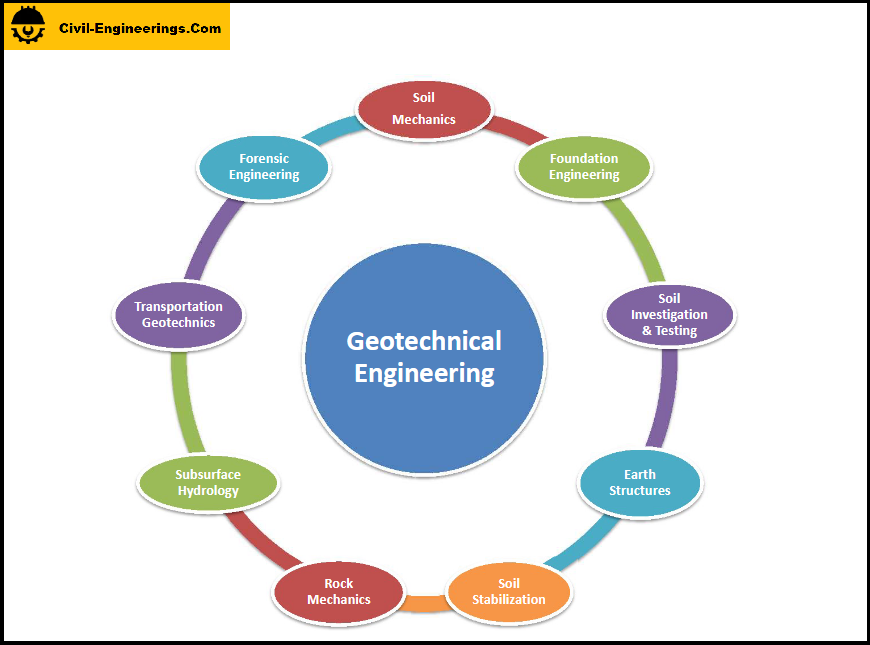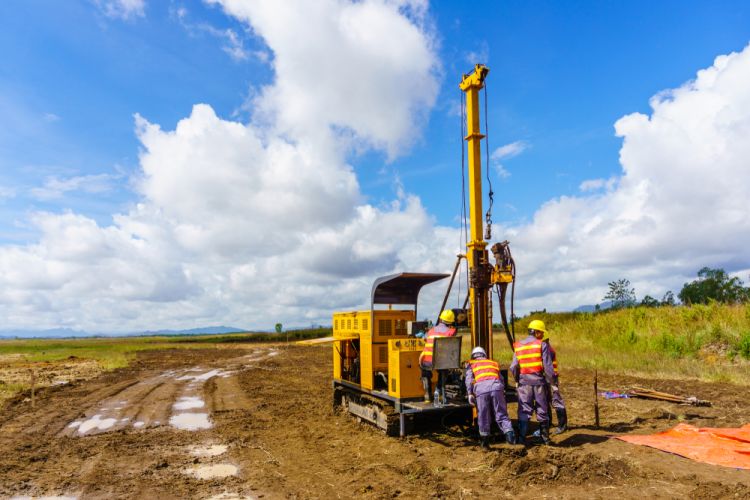The 2-Minute Rule for Specialized Geotechnical Engineering Solutions
The 2-Minute Rule for Specialized Geotechnical Engineering Solutions
Blog Article
The Only Guide to Specialized Geotechnical Engineering Solutions
Table of ContentsThe Ultimate Guide To Specialized Geotechnical Engineering SolutionsNot known Details About Specialized Geotechnical Engineering Solutions What Does Specialized Geotechnical Engineering Solutions Do?The smart Trick of Specialized Geotechnical Engineering Solutions That Nobody is Discussing
They carry out website examinations, collect examples, perform research laboratory examinations, and evaluate information to review the suitability of the ground for building tasks. Based upon their findings, geotechnical engineers offer suggestions for structure layout, incline stability, keeping frameworks, and mitigation of geotechnical dangers. They team up with various other professionals, such as architects, structural engineers, and building teams, to make sure that geotechnical factors to consider are incorporated right into the total task layout and execution.
Foundation Style: Geotechnical engineers play an important duty in making foundations that can safely support the intended structure. They assess the soil conditions and load demands to figure out the appropriate structure type, such as superficial structures (e.g., grounds), deep foundations (e.g., stacks), or specialized methods like soil enhancement. They take into consideration variables such as negotiation restrictions, birthing capability, and soil-structure communication to establish ideal foundation designs.
The Basic Principles Of Specialized Geotechnical Engineering Solutions
Below are some kinds of geotechnical engineers: Structure Engineer: Structure designers specialize in making and examining foundations for frameworks - Specialized Geotechnical Engineering Solutions. They evaluate the dirt problems, load demands, and site features to identify one of the most proper foundation type and design, such as superficial foundations, deep structures, or specialized techniques like stack structures
They do field testing, accumulate samples, and assess the gathered information to characterize the dirt buildings, geologic formations, and groundwater problems at a site. Geotechnical Instrumentation Engineer: Geotechnical instrumentation engineers concentrate on tracking and measuring the behavior of soil, rock, and frameworks. They install and maintain instrumentation systems that monitor aspects such as dirt settlement, groundwater degrees, incline movements, and structural variations to analyze performance and supply very early cautions of potential problems.
In the workplace environment, geotechnical engineers use specialized software program tools to carry out estimations, develop designs, and evaluate information. Specialized Geotechnical Engineering Solutions. They prepare records, testimonial project specifications, interact with customers and staff member, and coordinate task activities. The office setting offers a favorable setting for study, evaluation, and collaboration with other professionals associated with the job
They often check out task websites to perform site investigations, assess geotechnical conditions, and gather data for analysis. These check outs include traveling to different places, in some cases in remote or difficult terrains. Geotechnical engineers may carry out soil sampling, conduct examinations, and display construction tasks to make certain that the geotechnical elements of the job are being executed correctly.
Unknown Facts About Specialized Geotechnical Engineering Solutions
Geotechnical designers additionally operate in specialized geotechnical laboratories. In these facilities, they conduct experiments, do tests on dirt and rock samples, and analyze the design buildings of the materials. Geotechnical research laboratory engineers function extensively in these settings, managing testing devices, running instruments, and recording data. They team up with other research laboratory staff to make certain accurate and reliable testing outcomes.
Preserving Walls: Producing wall surfaces that keep back soil to stop landslides and provide stability on sloped surfaces. Embankments and Earthworks: Creating embankments for roadways, railways, and dams to ensure they stay secure under stress. explanation The mining market counts heavily on geotechnical design to make certain the safety and durability of its procedures.
With this in mind, we have actually designed our program to prepare trainees for success. The Geotechnical Design program at the College of Delaware offers chances for sophisticated research study and research in: Soil and rock auto mechanics Soil-structure communication Constitutive modeling Computational geomechanics Structure and earth frameworks engineering Ground improvement Slope stability and landslide stablizing Liquefaction of dirts and quake engineering Lab characterization of geomaterials and dirt reinforcement Ecological geotechnics Given the solid demand for renovation to our country's infrastructurethe American Society of Civil Designers provided my explanation the U.S.
Geotechnical design is a branch of civil design; however, it includes making use of clinical techniques and concepts to gather and analyze the physical homes of the ground. Geotechnical designers are associated with all phases of the layout of structures, from concept to building and construction. Their work is essential in the style and preparation procedure as they examine the honesty of soil, clay, silt, sand, and rock, prior to building beginning.
The Specialized Geotechnical Engineering Solutions Diaries
This is followed by a ground investigation based on the searchings for of the desk research study and entails test pitting and tasting to uncover any type of prospective issues. Geotechnical designers function within my link multidisciplinary teams, supported by intermediate and jr engineers in addition to by CAD service technicians. As a senior geotechnical designer on a hydro plant task, tasks may consist of taking part in technical evaluations (e.g., peer reviews), tailings clog assessments, dam security testimonials, and various other research studies associated with the layout and building and construction of mine waste centers.
While some professionals specialise solely in geotechnics, others may work under titles like design rock hound or ground designer within comparable abilities. As a geotechnical designer, you'll require to: develop and preserve partnerships with customers and other experts associated with the site, throughout each projectmaintain safety standards on site bear in mind price effects when you make recommendationsstudy geological maps and airborne photos from a series of sources and from different time periodsexamine building prepares to see how feasible they are based upon your understanding of the siteinvestigate threats or geological dangers for the sitesearch for ecologically sensitive features, such as landfill beginning to create accurate and interpretive ground modelsplan field investigationsdrill and analyse samples of bedrock, dirt, groundwater and added materials monitor various other professionals on sitesolve technological problems as they occur, such as unexpected frameworks at drill sitesmonitor conditions during and after building and construction to see to it structures are secure in the short and long termadd information collected on website to your preliminary researchcreate geotechnical calculations, illustrations, and two or three-dimensional computer system versions interpreting the datamake referrals regarding the proposed usage of the site.
There are whole lots of chances to fulfill new individuals, as you'll collaborate with a series of experts at every website. The work can be demanding as you may be accountable for the safety of others while on website. There is additionally a high level of economic responsibility, as the referrals you make can have serious expense implications.

Report this page